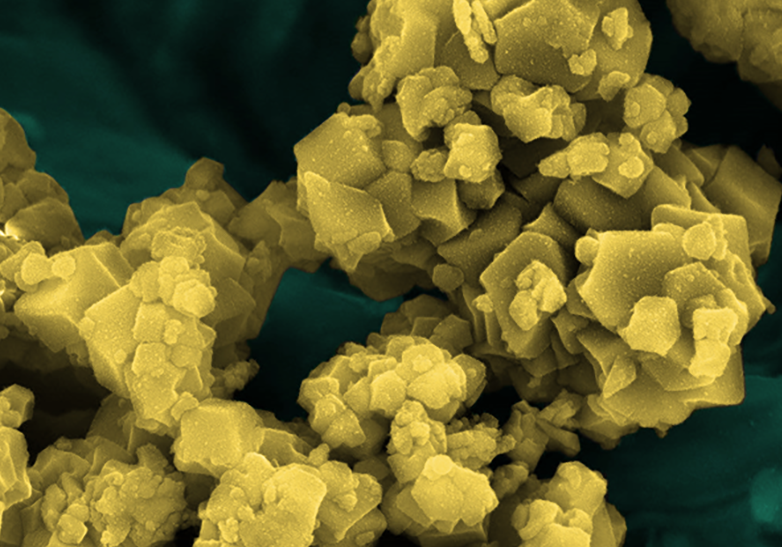
Synthetic carbons inside a sodium-ion battery
Source: BAM
The Federal Institute for Materials Research and Testing (BAM) is participating in a major European project to develop new measurement methods for sustainable battery materials. The aim is to fundamentally improve the characterization of batteries and thus accelerate the development of environmentally friendly energy storage devices.
The European battery industry faces major challenges: rising demand for electrical energy storage systems is met with limited resources and environmental impacts from manufacturing and disposal. New battery technologies such as sodium-ion systems or low-cobalt lithium-ion cells are considered promising alternatives – but have so far been difficult to characterize because they are based on complex and as yet little-researched material systems.
Hybrid measurement methods for the battery of the future
The project “Hybrid Metrology for Sustainable and Low-Carbon Footprint Battery Materials” (HyMetBat) aims to develop innovative hybrid metrology: Several independent measurement methods – such as X-ray spectroscopy, Raman spectroscopy, calorimetry, and impedance spectroscopy – are to be combined to analyze battery materials under realistic operating conditions (“in situ”).
BAM is developing a method that can precisely correlate the structural and electrochemical properties of these materials and is working closely with the Helmholtz-Zentrum Berlin (HZB), La Sapienza University in Rome, the University of Kent, and the National Physics Laboratory in the UK. "We are particularly interested in analyzing special anode materials whose storage capacity varies greatly for reasons that are still unknown today. We want to quantify the performance limits of these materials in safe operation. We will also use the findings in the Berlin Battery Lab (BBL), which was recently founded with the HZB and Humboldt University in Berlin," explains Tim-Patrick Fellinger, head of the BAM's Electrochemical Energy Materials Divison.
Scientific progress and industrial application
The measurement methods developed in the project are not only intended to advance research, but also to be incorporated into international standards and directly transferred into industrial practice. This includes case studies with automobile manufacturers, battery producers, and recycling companies. BAM is working closely with partners such as the MEET Battery Research Center in Münster.
HyMetBat is a project in the European research program “European Partnership on Metrology” under “Horizon Europe” and is funded by the EU with around 3.5 million euros. It brings together around 30 partner institutions from twelve countries. It is coordinated by the Physikalisch-Technische Bundesanstalt (PTB).


